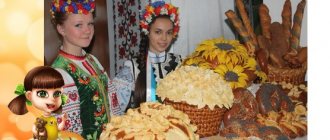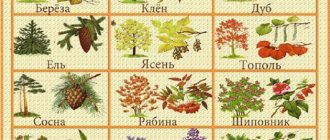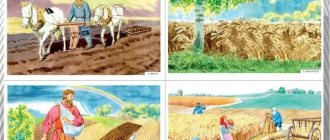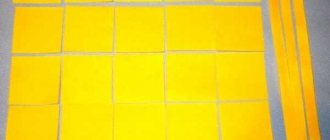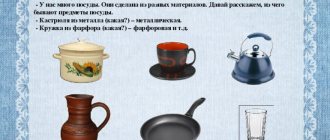PLOWING
We stir up memories of the past less and less now And at the dinner table We don’t divide the bread, but simply cut it, Moreover, forgetting about the knife that is not sharp, We grumble that the bread is a little stale, And we ourselves, perhaps at this hour, are many times staleer than it. It is impossible to imagine the life of a modern person, who can prepare many different dishes for himself, without bread. Bread is the head of everything. How did our ancestors manage without bread? And when did they learn to bake it? Already in the Stone Age, people noticed that the grains of some plants are very filling, and, unlike fruits and mushrooms, they do not spoil for a long time. These plants are wild cereals: rye, wheat, barley. Tribes of primitive gatherers settled near fields of wild cereals. They cut off the mature ears of corn with stone sickles. Gradually, people invented various tools with which they cultivated the land, harvested grain, and ground flour. Preparing land for sowing is hard work. In ancient times, in most parts of Rus', powerful, impassable forests grew. The peasants had to uproot trees and free the soil from roots. Even flat areas near rivers were not easy to cultivate for sowing.
“The earth is compacted: it is never turned, it is dead, because there is no access to air, and plants cannot live without air... everyone needs air to breathe. To give life to the earth, you need to turn it outward, you need to open access to air, that is, break it up, crush it” (S. V. Maksimov). In order for the land to “come to life”, it was necessary to plow it, and more than once: first in the fall, then in the spring before sowing. In those ancient times they plowed plows or roe deer. These are simple tools that every peasant could make himself. Later the plow appeared, although it did not completely replace the plow. The peasant decided what to plow. It depended on the soil. The plow was more often used on heavy fertile soils. Unlike the plow, the plow not only cut the layer of earth, but also turned it over. After the field is plowed, it needs to be “combed.” They did this with the help of this tool: “A sieve with four corners, five heels, fifty rods, twenty-five arrows.” This is a harrow. Sometimes a spruce log with a large number of long knots was used as a harrow. A “modernized” harrow is a grid of four bars to which wooden or iron teeth are attached. When harrowing, all clods were broken and pebbles were removed. The soil became loose, ready for sowing. RIDDLES, PROVERBS AND SAYINGS Baba Yaga, with a pitchfork, feeds the whole world, she herself is hungry. (Sokha) Walks in the field from end to end, cutting a black loaf. (Plow) * * * • If you sow at the right time, you will reap a mountain of grain. • It’s better to go hungry and sow good seed. • Place manure thickly, so the barn will not be empty. • The owner of the earth is not the one who wanders through it, but the one who walks with a plow. • There is no time to lie down when it’s time to reap. • Aches in the back, but there is bread on the table.
Tales about bread and work
Cautionary tales
I really love short, wise fairy tales, when only the most important things are said in a few sentences. I recently read a couple of wonderful educational tales that I want to share with you:
Latvian fairy tale about bread
One day, a wolf, exhausted from hunger, asked a shepherd for food. The shepherd gave the wolf a large piece of bread.
“What delicious food you people have,” said the wolf. - If we ate such food, we would not attack your sheep. How is it made?
“It’s a long story,” said the shepherd. “First we need to plow the land.”
“And can I eat?!”
"No. Wait a minute. Then you need to sow the land.”
“And can I eat?!”
“Wait a minute. I told you, it’s a long story.”
And the shepherd continued to tell the wolf a long chain of agricultural operations about how to wait for the harvest, then reap, stack, thresh, dry, grind, bake... The wolf kept getting involved with the question: “And can I eat?” And at the end he said: “You people have delicious food, but it’s difficult. Apparently, we will attack your sheep.”
All human life is a mixture of difficult and tasty, difficult and beautiful. A huge amount of work goes into the light of an ordinary light bulb or the stream of water from a tap. This other people's work needs to be appreciated, and the best way is to work yourself. Only what has been washed by mom gets dirty easily. What he washed and ironed himself is taken care of more carefully and is reluctant to get dirty.
Serbian tale of the beggar king
Once upon a time there was a king who set out on a journey by sea with his wife and daughter, and they were shipwrecked. They washed ashore in an unknown country. There, not knowing the crafts, they began to herd other people's sheep, leading a miserable life. It happened, however, that the king of that country was looking for a bride for his son. They walked around the kingdom, saw all the girls - and chose a dazzlingly beautiful poor girl - the daughter of this shepherd. The prince offered her his hand and heart, but the girl’s father gave her an ultimatum: “I won’t give up my daughter until you, prince, learn one of the crafts.” The prince was indignant, but obeyed the will of his future father-in-law and learned to weave mats. He wove two pieces and came again to woo.
“How much does one mat cost?” - asked the shepherd. “Two pennies,” answered the prince. “How long did it take you to weave them?” "Per day". “Four pennies a day...” thought the old man. - OK. Take my daughter." “Thank you, father. But now explain why you need all this? After all, I am a prince. I will need to run the country, not weave mats.” “Oh, son,” answered the shepherd. “And I was a king.” But if I could at least weave mats, then after the loss of the kingdom my family would have lived a little better.”
From the book “The First Miracle” (Archpriest Andrei Tkachev)
We have selected 5 more interesting articles for you:
grow-clever.com
SEV
In Rus', the year began in the spring. The life of the peasant largely depended on sowing. A harvest year means a comfortable, well-fed life. In lean years they had to go hungry. Peasants carefully stored seeds for future sowing in a cool, dry place so that they would not germinate ahead of time. They checked more than once whether the seeds were good. The grains were placed in water - if they did not float up, but sank to the bottom, then they were good. The grains should also not be stale, that is, stored no more than one winter, so that they have enough strength to cope with weeds. In those days there were no weather forecasts, so the peasants relied on themselves and folk signs. We observed natural phenomena in order to start sowing on time. They claimed that if you listen more closely, you can hear the frog as if pronouncing: it’s time to sow. If the first water during river floods is high, spring sowing is early, but if not, it is late. Sowing day is one of the most important, but also the most solemn days in the agricultural year. That’s why the first sower went barefoot (his feet should have already been warm) into the field in a white or red (festive) shirt, with a basket of seeds hanging on his chest. He scattered the seeds evenly, with a “secret, silent prayer.” After sowing, the grain had to be harrowed.
In ancient times, peasants preferred rye: it is more reliable, resistant to cold and changing weather. Wheat bread tastes better, but there is more hassle with this grain. Wheat is capricious, heat-loving, and may not yield. And wheat also takes all the “strength” from the earth. The same field cannot be sown with wheat two years in a row. Peasants planted grain crops not only in spring, but also in autumn. Before the onset of severe cold, winter grains were sown. These plants had time to sprout and appear on the surface before winter. And when the foliage around them turned yellow, the winter shoots began to fade and fall off. If there were warm autumn days for a long time, then the peasants specially released their cattle onto the winter field. The animals ate the sprouts, and then the plant took root more actively. Now the peasants hoped for a snowy winter. Snow is a coat for plants. Tree branches and various objects were placed on the fields so that the snow would “cling” to them and remain on the fields. RIDDLES, PROVERBS, SAYINGS It turns green for two weeks, It starts to make ears for two weeks, It blooms for two weeks, It pours for two weeks, It dries up for two weeks. (Rye) * * * He rides into the field on his back, Across the field on his feet. (Harrow) * * * • Bread is father, water is mother. • Bread is on the table, so the table is a throne; and not a piece of bread - and the throne is a board. • Mosquitoes have appeared - it’s time to sow rye. • The frog croaks - the oats are jumping.
BREAD IS GROWING
From the moment a grain hits the ground, it strives to get out. “The earth feeds the winter, the sky waters with rain, the sun warms with warmth, and summer, know, grows bread.” The sun shines, warms the earth and gives warmth to the grain. In the warmth, the grain begins to germinate. But not only does the grain need warmth, it also needs to “drink and eat.” Mother earth can feed the grain. It contains all the necessary nutrients for the growth of grains. In order for the grains to grow faster, the harvest to be larger, the land was fertilized. Fertilizers in those days were natural. The land was fertilized with manure, which accumulated over the year from raising livestock. Urine, urine, rain, On our rye; For grandma's wheat, for grandpa's barley, water all day long. This is how they called for rain. Without rain, bread will not grow. But there should be rain in moderation. If it rained too often and interfered with the ripening of the crop, then the children uttered another call: Rainbow-arc, Stop the rain, Bring on the sun. The sun gives plants not only warmth, but also light. The first leaves sprout vertically upward, but the subsequent ones grow in the opposite direction and then give roots, and from one grain a whole bush is obtained. In the old days, June was also called grain harvest. The peasants even counted how many warm, bright days were needed for the grains to ripen: “Then, in 137 warm days, winter rye ripens and at the same number of degrees of heat, winter wheat ripens, but ripens more slowly, not earlier than 149 days.” “The blue and the bell ring, and that’s the end of the bread.” Who are these evil “sinets and bells” and what are they armed with, how can they destroy bread? These are plants that appear on the grain field on their own, although no one planted them there, and begin to take away nutrients from the grain - weeds.
Grain production cannot be achieved without the help of peasants. The peasants “armed themselves” with various devices and fought with weeds – “sedge, various mints, brooms or brooms and bonfire grass.” We had to work hard, but it was not always possible to defeat the weeds. For example, if wheatgrass appears in a field, it is very difficult to remove it. It is necessary to collect all the pieces of wheatgrass roots, otherwise a new wheatgrass may grow from a small piece. Vole mice caused great damage to grain fields, nesting in the rye and eating up the roots. A real disaster for cereals was the locust, swarms of which could leave nothing at all of the plants. Birds - sparrows and especially corncrakes - helped the peasants fight insects. RIDDLE One pours, another drinks, the third turns green and grows. (Rain, earth, bread)
Pages: 1 2 3
A fairy tale about BREAD for children
Content
An instructive Belarusian folk tale about bread for children, “Light Bread,” was translated for us by the Russian poetess and translator Elena Aleksandrovna Blaginina.
Read with pleasure and benefit!
"Light bread"
A man was mowing the grass in the meadow. He got tired and sat down under a bush to rest. He took out the bundle, untied it and began to eat. A hungry wolf comes out of the forest. He sees a man sitting under a bush and eating something. A wolf approached him and asked: “What are you eating?” “Bread,” the man answers. - Is it tasty? — Passion is so delicious! - Let me try. - Welcome! The man broke off a piece of bread and gave it to the wolf. The wolf liked the bread. He says: “I would like to eat bread every day, but where can I get it?” Please advise! “Okay,” says the man, “I’ll teach you where and how to get bread.” And he began to teach the wolf: “First of all, you need to plow the land...” “Then there will be bread?” - No, brother, wait. Then you need to harrow the land...
- And can I eat bread? — the wolf was delighted and waved his tail. - Look how fast you are! First you need to sow rye... - Then there will be bread? - the wolf licked his lips. - Not yet! Wait until the rye sprouts, survives the cold winter, grows in the spring, then starts to spike, then the grain begins to fill, then ripen... - Oh, - the wolf sighed, - it’s too long to wait! Well, when the grain ripens, then will I eat plenty of bread? - Where can you eat? - says the man. - It’s still early! First, ripe rye must be compressed, then tied into sheaves, and then the sheaves must be placed in the rump. The wind will blow them away, the sun will dry them, then take them to the current. - And will I eat bread? - How impatient! The first thing is to thresh the sheaves, collect the grain in bags, take the bags to the mill and grind the flour... - That's all? - No, not everything. You need to knead the dough from flour and wait for the dough to rise. Then put it in a hot oven. — Will the bread be baked? - Yeah, it'll be baked. Then you’ll eat to your heart’s content,” the man finished. The wolf thought, scratched the back of his head and said: “No!” This work is not for me - it’s long, troublesome, and difficult. You better advise how to get easy bread. “Well,” says the man, “if you don’t want to eat difficult bread, eat light bread.” Go to the pasture, the horse is grazing there. The wolf went to the pasture. I saw a horse: “Horse, horse, I’ll eat you!” “Well,” says the horse, “eat.” Just first take the horseshoes off my feet so as not to break my teeth on them. “And that’s true,” the wolf agreed. He bent down to tear off the horseshoes, and the horse kicked him with its hoof! The wolf somersaulted and let's go. He ran to the river. He sees geese grazing on the shore. “Should I eat them?” - the wolf thinks. Then he says: “Geese, geese, I’ll eat you!” “Well,” the geese answer, “eat.” Just do us a favor first. - Which one? - asks the wolf. - Sing us a song and we will listen. - It's possible! I am a master at singing songs. The wolf sat down on a hummock, raised his head and began to howl. And the geese - fluttering their wings - took off from their place and flew away. The wolf got down from the hummock, looked after them and went on with nothing. He walks and scolds himself: “Well, I’m not a fool, am I? And why did I start singing to the geese! Well, now I’ll eat whoever I meet!” Just when he thought so, he looked and saw an old grandfather wandering along the road. Wolf - to him: - Grandfather, grandfather, I will eat you! - What's the hurry? - says the grandfather. - Let's smell the tobacco first. - Is it tasty? - Try it, you’ll know. - Let's! The grandfather took the snuff box out of his pocket, sniffed it himself and gave it to the wolf. The wolf sniffed with all his might and sniffed all the tobacco and inhaled. And then let’s sneeze all over the forest... He can’t see anything because of his tears, he keeps sneezing. I sneezed for more than an hour while I rested. I looked around, and there was no trace of my grandfather. The wolf moved on. He walked and walked and looked at the sheep grazing in the meadow and the shepherd sleeping. The wolf spotted the largest lamb, grabbed it and said: “Sheep, ram, I’ll eat you!” “Well,” says the ram, “apparently this is my lot.” Stand in that hollow and open your mouth wider. And I’ll run up the hill, accelerate and jump into your mouth myself. “Thank you for the advice,” said the wolf, “we’ll do that.” He stood in the hollow, opened his mouth, and waited. And the ram ran up the hill, sped up and fucked the wolf with its horns! Sparks began to fall from his eyes... The wolf came to his senses, shook his head and said: “I don’t understand: did I eat it or not?” And at this time that same peasant was returning home from mowing. He heard Volkov’s words and said: “You didn’t eat it, but you tasted light bread.”
folklor-dlya-detej.ru
